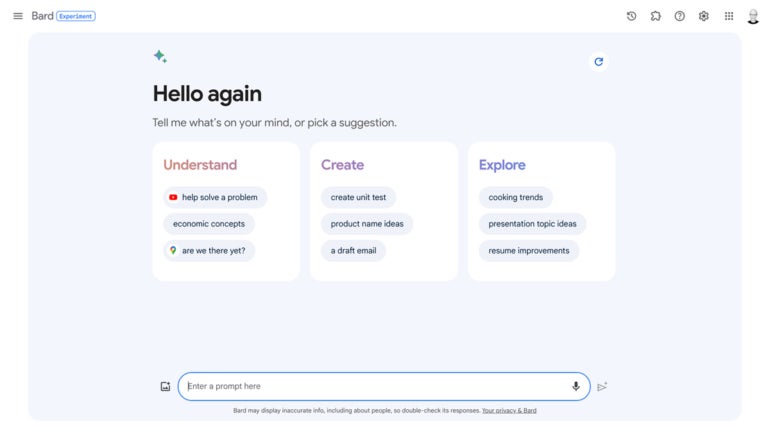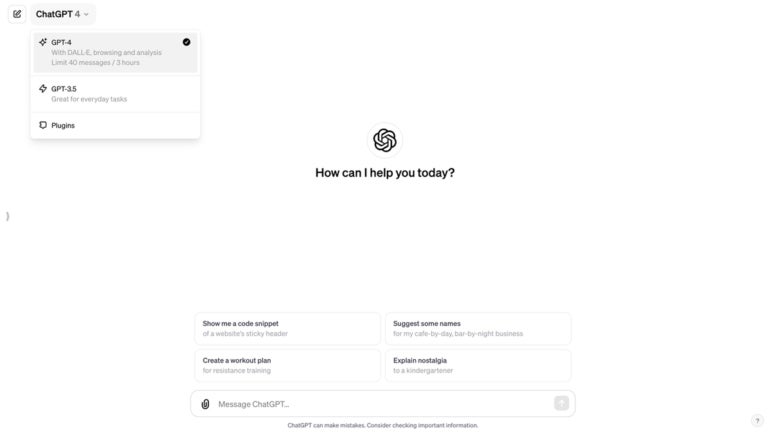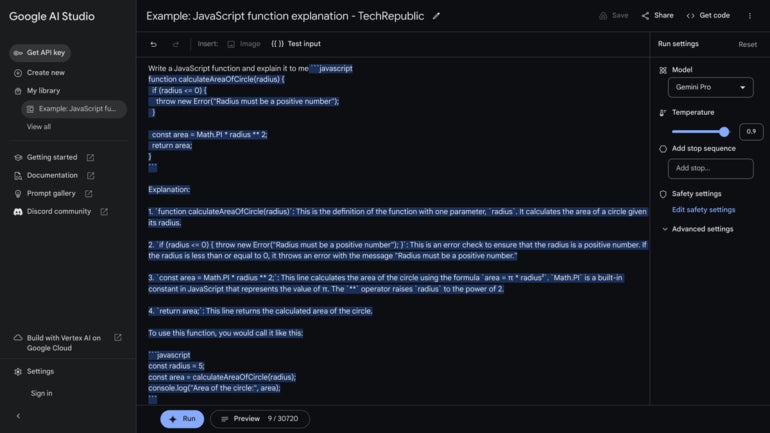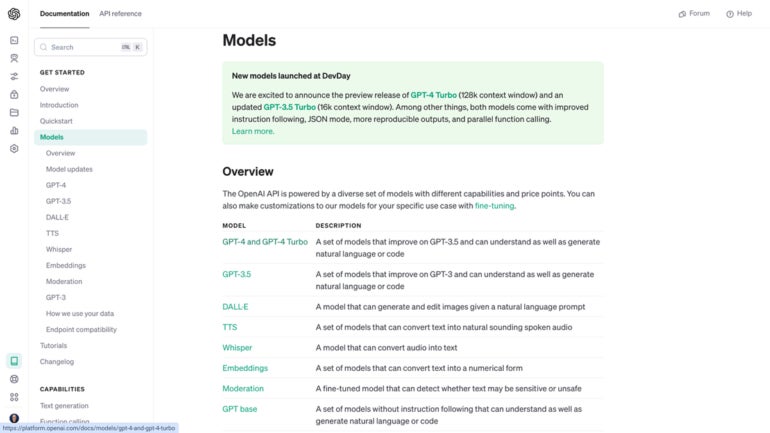When OpenAI, significantly funded by Microsoft, launched public access to ChatGPT in November 2022, it entered into competition with Google, among others, for generative AI leadership. A little more than a year later, Google announced that Gemini, its most advanced AI system to date, would be rolled out starting in December 2023.
OpenAI and Google are iterating rapidly. This article covers the key features and pricing details for OpenAI’s ChatGPT and Google’s Gemini, so you will have the information you need to determine whether Gemini is better than ChatGPT for your business needs.
Gemini vs. ChatGPT: Comparison table
| Feature | Gemini | ChatGPT |
|---|---|---|
| Notable editions and availability | Gemini Ultra, Announced for 2024 Gemini Pro, Dec. 2023 Gemini Nano, Dec. 2023 |
GPT-4, March 2023 GPT-3.5, Nov. 2022 |
| Free chatbot access | Google Bard (use to access Gemini Pro) | ChatGPT (access to GPT-3.5) |
| Paid chatbot access | None (as of early February 2024) | ChatGPT Plus, $20/month (access to GPT-4 with DALL-E, browsing and analysis); ChatGPT Team, $30/month ($25/month, paid annually); ChatGPT Enterprise (contact sales |
| API access | Yes, Gemini Pro. | Yes, GPT-4 Turbo, GPT-4, GPT-3.5 and others. |
| Visit Gemini | Visit ChatGPT |
Gemini and ChatGPT pricing
Both AI systems offer chatbot and API options; the various free and paid alternatives are detailed below.
Gemini chatbot pricing
Free: Try Gemini Pro for free when you use Google Bard in countries where Bard is available. Using Bard requires you to log in with a Google account.
Some Google materials have mentioned a future release of Bard Advanced, but few details have been released.
ChatGPT chatbot pricing
Free: Use ChatGPT with GPT-3.5 for free when you sign up for an OpenAI account.
Paid: ChatGPT Plus, a paid option that costs $20/month, adds access to GPT-4 with browsing and analysis features. It also includes access to DALL-E, which allows you to enter a prompt to generate an image.
Third-party: Several third-party apps rely on ChatGPT or offer it as an option. Often, a limited number of prompts per hour may be made at no charge; in some cases, a paid upgrade offers access to more accurate models and more prompts. Such services include Bing Chat, Microsoft Copilot, Perplexity.ai and Poe.
Google Gemini developer pricing
Free, with limits: Developers may use Google AI Studio to access Gemini Pro for free, with up to 60 requests per minute.
Free now, paid in 2024: Vertex AI developers may also access Gemini Pro for free, but once Gemini Pro status changes to general availability in 2024, then pricing will be:
- $0.00025 per 1,000 characters for input ($0.0025 per image).
- $0.0005 per 1,000 characters for output.
No pricing details have been announced for Gemini Ultra.
ChatGPT developer pricing
Paid: Sign up for OpenAI API to access various AI models; pricing for these varies by model and usage. According to OpenAI’s pricing page, “You can think of tokens as pieces of words, where 1,000 tokens is about 750 words.” Three popular models include:
- GPT-4 Turbo (AKA gpt-4-1106-preview): $0.01 per 1,000 tokens for input and $0.03 per 1,000 tokens for output.
- gpt-4-32k model: $0.06 per 1,000 tokens for input and $0.12 per 1,000 tokens for output.
- gpt-3.5-turbo-1106 model: $0.0010 per 1,000 tokens for input and $0.0020 per 1,000 tokens for output.
Feature comparison: Gemini vs. ChatGPT
The best way to get a sense of the basic capabilities of Gemini and ChatGPT is to sign in with an account and experiment with a free system. Engage with Google Bard since Gemini Pro drives that offering, or try OpenAI’s ChatGPT to learn what GPT-3.5 can do.
Chat: Gemini Pro in Google Bard
Google Bard is available in a web browser. As of early 2024, when you use Bard (Figure A) in most countries, the system relies on Gemini Pro.
Figure A

Google Bard allows you to prompt with text, code, data or uploaded images; the system can respond with text, code, an image or content obtained by browsing the internet. You may choose to enter a prompt by speaking (select the microphone) or have the system read a response (select the speaker symbol next to a response). Responses may be double-checked by selecting the Google logo to compare content to trusted search data.
Bard with Gemini Pro is designed to be multimodal, meaning the system can accept input in a variety of formats without the need to expressly “switch” to a different mode. For example, you might upload a picture along with a prompt asking the system to describe the picture.
When using Google Bard with a personal (not an organizational) account, you may optionally enable extensions. These extensions allow Bard to access information from Google Flights, Google Hotels, Google Maps, Google Workspace (Gmail, Drive and Docs) or YouTube. For example, this lets you ask the system about information from a YouTube video or Google Drive document.
Chat: OpenAI ChatGPT features
ChatGPT is available on the web and within the ChatGPT app on Android, iPhone or iPad.
ChatGPT Plus with GPT-4 (Figure B) allows you to prompt with text, code, data or uploaded images or documents. The system can respond with text, code, an image or content obtained by browsing the internet. On mobile devices, you may choose to talk to ChatGPT, and the system will similarly read responses aloud. ChatGPT Plus also lets you create images with a text prompt, thanks to the system’s connection to DALL-E.
Figure B

ChatGPT Plus also supports custom instructions, which allow you to enter text to guide ChatGPT toward better responses for your intended use. For example, custom instructions might be different when you want ChatGPT to help with code than when you seek marketing ideas.
Note that the free option, ChatGPT with GPT-3.5, essentially limits you to text prompts and responses, which tend not to be as useful as those provided by GPT-4.
API: Gemini
Google announced on Dec. 13, 2023 that Gemini Pro may be accessed in preview either in Google AI Studio (Figure C), a developer prototyping tool; or Vertex AI, a comprehensive AI platform, or via API. Google has plans to leverage Gemini in other products, such as Duet AI, the Google Workspace paid add-on and in Chrome and Search. Additionally, Duet AI for Developers will transition to Gemini.
Figure C

API: OpenAI options
OpenAI offers a variety of API model access options, including GPT-4, GPT-4 Turbo and GPT-3.5 (Figure D). (Subscribers to ChatGPT Plus, Teams and Enterprise may switch between GPT-4 and GPT-3.5 in prompts.) In general, GPT-4 options provide higher quality responses than GPT-3.5. Additionally, OpenAI offers image and audio APIs (e.g., DALL-E, TTS and Whisper), among others. All of these are available for use with an OpenAI API account.
Figure D

Gemini: Pros and cons
Gemini pros
- Available in three sizes: Nano (on-device), Pro and Ultra (most capable).
- Google’s most advanced system to date.
- Designed to be multimodal.
- Free options to experiment in Google Bard and Google AI Studio.
- Planned use of Gemini in various Google services and products.
Gemini cons
- Of the three Gemini sizes, only Gemini Pro is initially widely available for use.
- Compared to ChatGPT, the public and developers are less familiar with Gemini.
- Lack of transparency of source data.
ChatGPT: Pros and cons
ChatGPT pros
- Historically, GPT-4 often ranked strongest in various benchmarks.
- ChatGPT and ChatGPT Plus are widely used, so there are many resources and guides available.
- API access to several ChatGPT models has been available for some time.
- There is a free option to experiment (ChatGPT with GPT-3.5).
ChatGPT cons
- OpenAI’s leadership drama in late 2023 may prompt people to seek secondary or alternative solutions.
- Lack of transparency of source data.
What are the key areas that OpenAI and Google are competing in AI?
Fundamentally, OpenAI and Google are vying for AI leadership in three areas.
First, this is a tech race. Since its launch in March 2023, OpenAI’s GPT-4 has consistently outperformed other AI models. Google claims Gemini Ultra, its most capable version, matches or outperforms GPT-4 on select benchmarks. Regardless of technical differences between the systems, this competition benefits customers.
Second, it is a quest for a sustainable business model for AI systems. To date, OpenAI, with Microsoft, has made massive investments, as has Google. OpenAI offers access to a variety of models — GPT-3.5, GPT-4 and GPT-4 Turbo — for different uses, while Google has optimized Gemini for three sizes: Nano, Pro and Ultra. Both organizations seek to balance AI performance, features and cost, since these systems must be economically sustainable at some point.
Third, there’s a competition for mindshare among the public and developers. Public interest in ChatGPT has been rapid and sustained. Financial firm UBS reported that ChatGPT gained more than one million users within a week of launch; Google Trends indicates greater interest in ChatGPT than competitors; and The Economist recognized ChatGPT as its 2023 word of the year.
Developer mindshare, though, may be more malleable. Leadership struggles at OpenAI in late 2023 prompted some developers to rethink their reliance on both ChatGPT as a coding assistant and OpenAI as a single-source AI provider.
SEE: The Complete ChatGPT Artificial Intelligence OpenAI Training Bundle (TechRepublic Academy)
Should your organization use Gemini or ChatGPT?
If you need to implement a widely used AI solution, OpenAI’s ChatGPT and API offerings may be your best choice, since Google made Gemini Pro access available to developers only on December 13, 2023. Longer term, the choice is less obvious.
OpenAI’s leadership struggles in late 2023 prompted at least some developers to explore a wider range of AI alternatives, including options from OpenAI’s close partner, Microsoft. Google has an excellent track record of research achievements in AI, and the company seems to have a sense of urgency to deliver solid AI solutions.
A prudent practice for leaders in most enterprise environments will be to monitor and experiment with both options, as OpenAI and Google strive to build useful and sustainable AI platforms.
Methodology
This December 2023 comparison relied on public information from each vendor and experimentation, specifically with ChatGPT (GPT-3.5 and GPT-4) and Bard. Both companies make regular updates, so look to Google or OpenAI to learn about the latest features.

